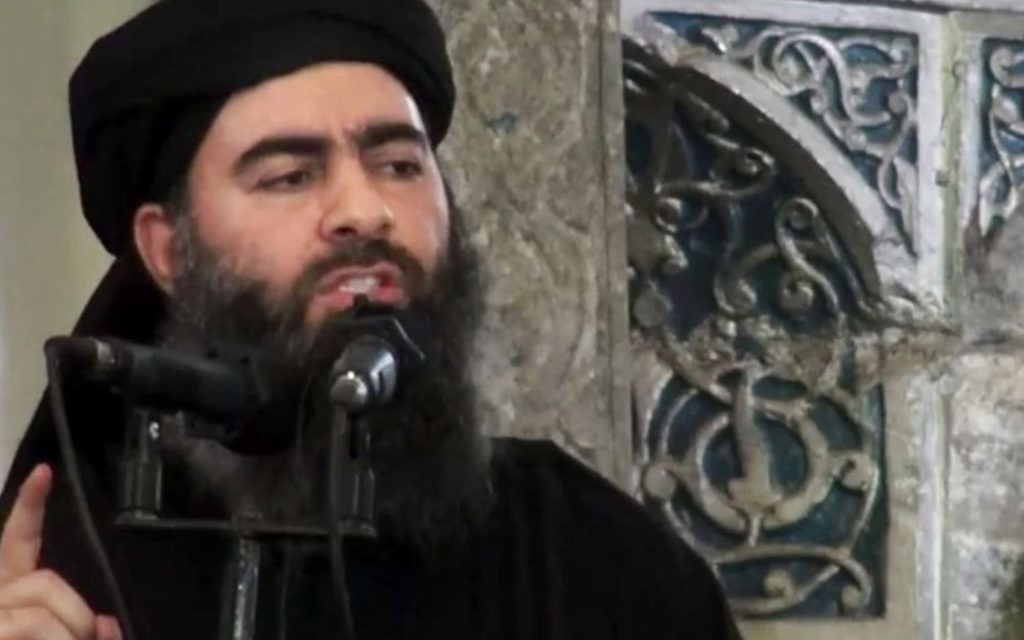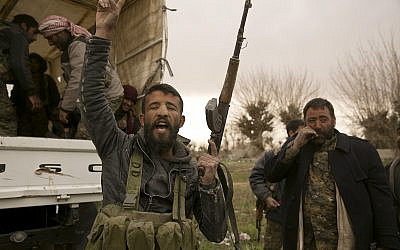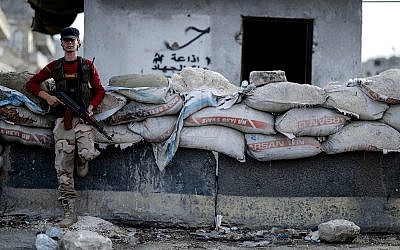Killing of Abu Bakr al-Bahgdadi by US special forces is symbolic blow, but doesn’t mean end of Islamic terrorism or portend significant change in how IS operates

US special forces carried out a high-level raid in Syria against Abu Bakr al-Bahgdadi, killing the elusive Islamic State terror group’s leader. The assassination of Baghdadi is a major symbolic blow to the organization and everything it represents, but its impact must not be overstated. His death does not mean the end of IS.
The organization’s modus operandi will not change dramatically and its operations are more likely to be constrained by larger military and financial issues than by the death of one man. Now, after the disintegration of its territorial empire, the Islamic State is already more of an idea than a concrete reality and, as such, it is expected to continue, in a changed form, to plague the West for years to come.
The big question we should be asking at the moment is what will happen to the larger idea of Salafist jihad? After the death of Osama bin Laden, IS stepped into the newly created jihadist leadership vacuum. The organization ascended to new levels of brutality that surpassed, in many ways, even the tactics employed by the notoriously vicious al-Qaeda.
There are still several other competing jihadist groups, such as Tahrir a-Sham, operating in Syria’s Idlib province, where Baghdadi was killed. Harried by Syrian and Russian airstrikes, their capacities are limited, and it is more than likely that we will see the ascension of another organization, led by a figure no less charismatic than Baghdadi, that will push a radical agenda, perhaps more extreme than that of IS, if such a thing can be imagined.
With a $25 million US bounty on his head, Baghdadi was the world’s most wanted man, responsible for steering his chillingly violent organization into mass slaughter of opponents, and directing and inspiring terror attacks across continents and in the heart of Europe.

Shifting away from the airline hijackings and other mass-casualty attacks that came to define al-Qaeda, Baghdadi and other IS leaders supported smaller-scale acts of violence that would be harder for law enforcement to prepare for and prevent.
They encouraged jihadists who could not travel to the caliphate to kill where they were, with whatever weapon they had at their disposal. In the US, multiple extremists have pledged their allegiance to Baghdadi on social media, including a woman who along with her husband committed a 2015 massacre at a holiday party in San Bernardino, California.
Although largely seen as a symbolic figurehead of the global terror network — he was described as “irrelevant for a long time” by a coalition spokesman in 2017 — Baghdadi’s capture or death was a coveted prize for the various players across both Syria and Iraq.
Baghdadi was born Ibrahim Awwad Ibrahim Ali al-Badri al-Samarrai in 1971 in Samarra, Iraq, and adopted his nom de guerre early on. Because of anti-US militant activity, he was detained by US forces in Iraq and sent to Bucca prison in February 2004, according to IS-affiliated websites.
He was released 10 months later, after which he joined the al-Qaeda branch in Iraq led Abu Musab al-Zarqawi. He later assumed control of the group.
After Syria’s civil war erupted in 2011, Baghdadi set about pursuing a plan for a medieval-style Islamic State, or caliphate.

He merged a group known as the Nusra Front, which initially welcomed moderate Sunni rebels who were part of the uprising against Syrian President Bashar Assad, with his, known as the Islamic State of Iraq and the Levant. Al-Qaeda’s central leadership refused to accept the takeover and broke with Baghdadi.
Baghdadi’s fighters captured a contiguous stretch of territory across Iraq and Syria, including key cities, and in June 2014, it announced its own state — or caliphate. Baghdadi became the declared caliph of the newly renamed Islamic State group. Under his leadership, the group became known for macabre massacres and beheadings — often posted online on jihadi websites — and a strict adherence to an extreme interpretation of Islamic law.
IS’s conquests gave the organization an aura of invincibility that enabled it to recruit volunteers from Europe, Australia, the US and even Israel. Even before the Trump administration came to power, it was obviously a matter of time before someone found Baghdadi, as representatives of multiple regional and international powers were working hard to track him down.

Although Baghdadi studied Islam at the Islamic University of Baghdad, he was not a particularly renowned religious authority. He simply appropriated the title of “Caliph” and asked Muslims all over the world to listen to him.
According to Yoram Schweitzer, a jihad researcher at the Institute for National Security Studies at Tel Aviv University, “Baghdadi was reported to have appointed heirs but it is clear that the title of caliph he took for himself (and which was rejected by his al-Qaeda opponents) will not be inherited.”
He explained that Baghdadi’s claim to be “caliph” was met with opposition among all the leading Sharia scholars in the Salafist jihad movement and that “even if they try to crown a new caliph in IS, it won’t mean much.”
The meaning of the term “caliph” is also very limited these days, given the bankruptcy of the “state” idea. IS is mostly focused on survival and with the execution of terrorist attacks, but the Islamic State no longer exists and anyway the position of its leader is far less relevant and important than it once was.
As reported by The Times of Israel
